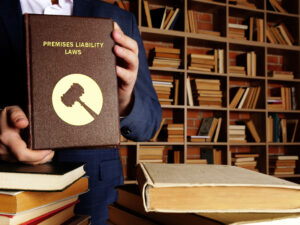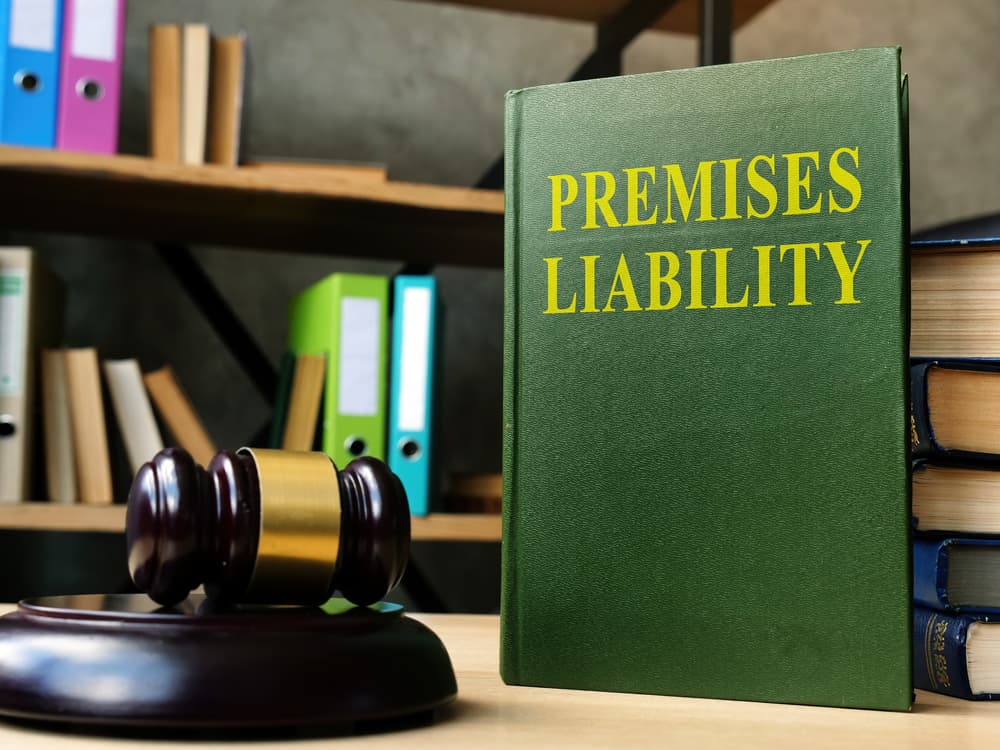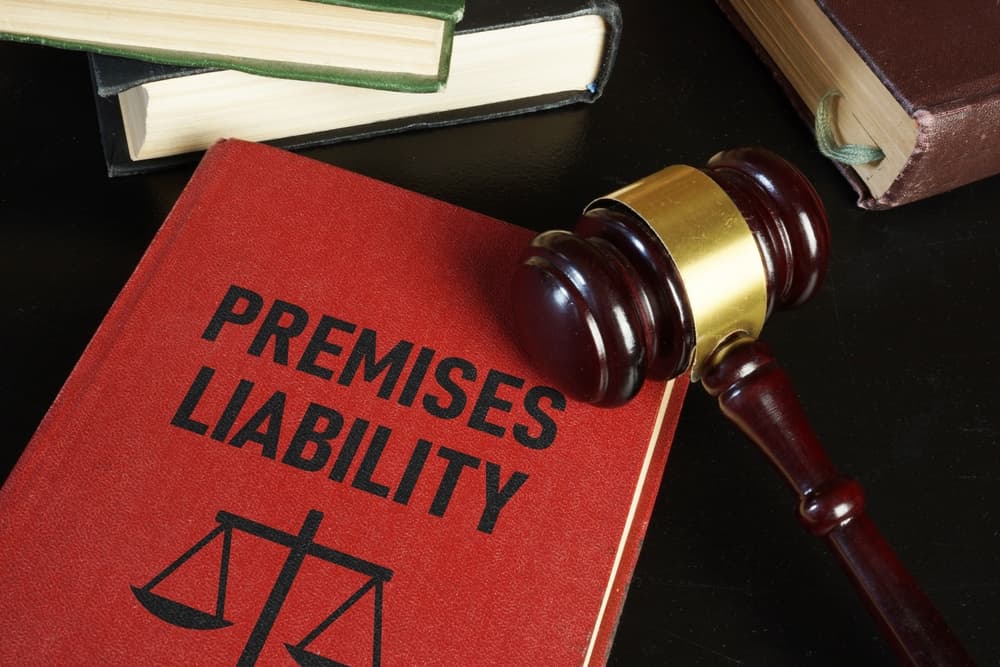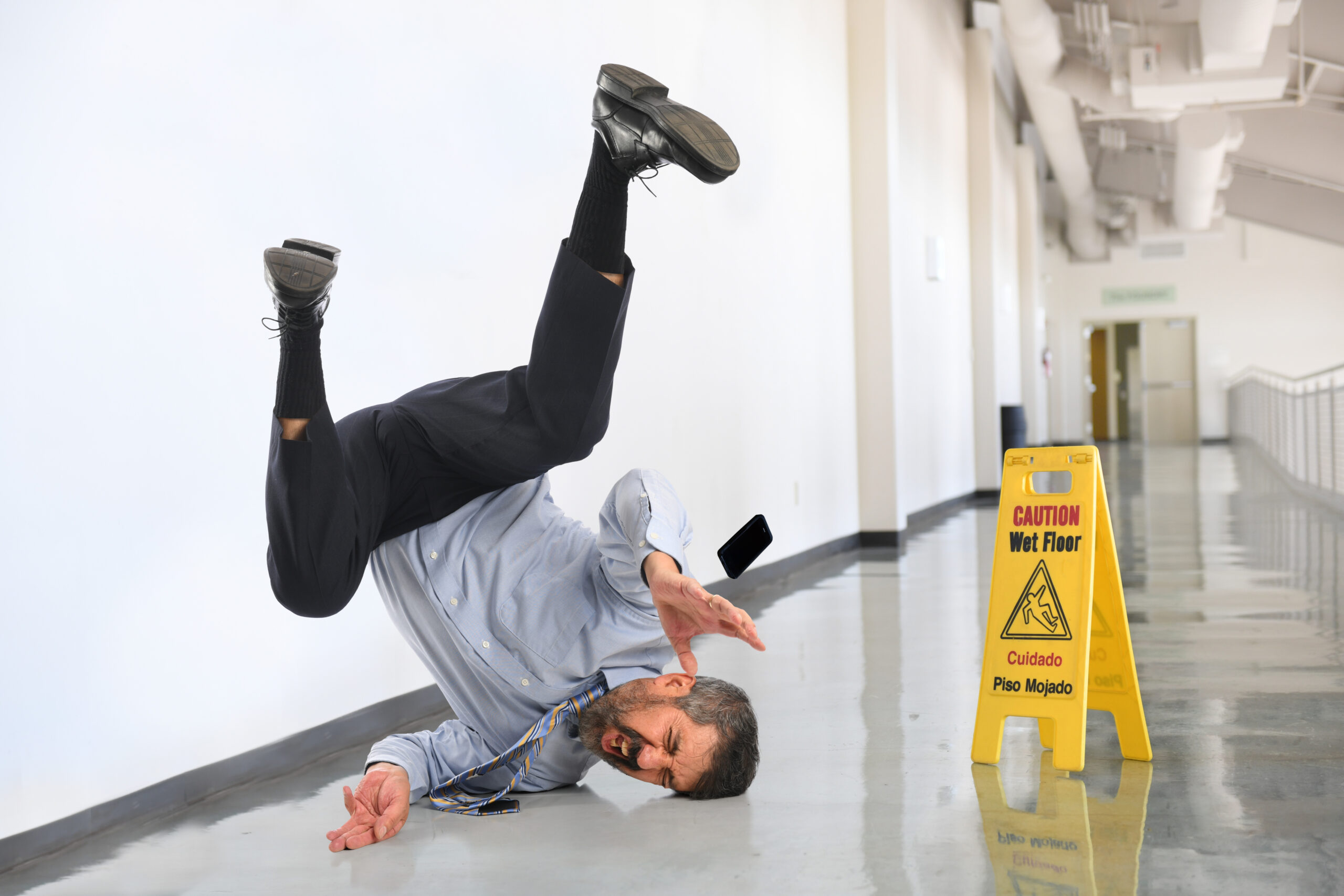When someone owns or leases property and allows others on it, they owe visitors a duty of care. It does not matter whether they send you a personalized invitation. When they open their premises to the public and you enter, they assume a legal obligation to you.
So long as you have a right to be on the premises, the person or entity in control of the property will have to pay you damages if their lack of care injured you.
It does not matter whether the property is a business or a personal residence. In many instances, you can hold a property owner or a party responsible for the maintenance of a property (like a store that leases a location) legally liable for injuries on their property. An experienced premises liability lawyer in New Port Richey can help you settle your case and get compensation for your injuries.

Premises Liability Law Can Encompass Many Things
Practically anything bad that can befall you on the property of another can be the subject of a premises liability lawsuit.
From the second you walk onto someone else’s property, you place your wellbeing under their control.
They should know better than you about what can go wrong on their property. They also have an obligation to fix hazards caused by natural processes or other people on their property. For example, store owners have a duty to mitigate issues like snow or ice or wet floors caused by other patrons.
The owner can be liable for any type of accident injuries that occurs on their property if it results from their failure to take reasonable care.
Some examples of accidents that can result in premises liability claims include:
- Slip and fall accidents
- Injuries that are the result of negligent security
- Fires
- Patio deck collapses
- Parking lot injuries
- Escalator and elevator accidents
- Swimming pool accidents
- Hotel injuries
- Dog bite attacks
These are just some types of cases that fall under the umbrella of premises liability law. The laws apply any time that you enter the property of another, regardless of what brought you there.
Premises Liability Law Will Not Insure You Against All Injuries
The property owner does not have an unlimited obligation to you. They do not have to prevent every single accident on their property.
Premises liability law operates from the theory that accidents can and do happen. Sometimes people trip and fall, and nobody is at fault for it. For example, if you failed to tie your shoe and fell while shopping in a store as a result, it is unlikely that you will have a premises liability claim.
Further, some things can happen that are outside the owner’s control. Based on what they knew at the time, the owner may not have anticipated what might have happened. You cannot always hold a property owner liable for injuries for something that never happened before, and the owner could not have prevented it.
Premises Liability Law Is About Proving Negligence or Other Wrongful Actions
Accordingly, you have to prove that the property owner committed some kind of wrongdoing, whether it was something they did or the failure to do something they should have done. The legal standard in a premises liability case is negligence.
In any personal injury case, you prove negligence when you can demonstrate the following:
- The other party owed you a duty of care
- They failed to uphold the duty of care by acting unreasonably under the circumstances
- You suffered an injury
- You would not have suffered an injury had it not been for the acts of the property owner
Premises liability negligence depends on the circumstances and type of case. Usually, negligence involves situations where the owner knew or should have known something, but they still failed to take the necessary action to keep you safe.
For example, in a slip and fall case, you will prove negligence by showing:
- The property owner created the dangerous condition themselves.
- Someone else created the dangerous condition, but the property owner did not take action within a reasonable time.
If the property owner did not know the danger, they may not have had any obligation to fix the dangerous condition or warn you. For example, if someone spilled a drink on the floor of a store, and you slipped on it seconds later, there is little that the property owner might have done. However, if the condition existed for some time, they should have either put up a wet floor sign or cleaned the spill.
In another context, a property owner will have an obligation to enhance their security once they know there may be danger to their patrons. If something happened on the property before, or crime was increasing in the neighborhood, the property owner will have an obligation to hire additional security guards or better control entry to the property.
In essence, premises liability cases revolve around the fundamental principle that property owners must inspect their premises and promptly address any hazards once they discover them. They cannot purposefully ignore potential dangers or delay gaining knowledge about them.
Property Owners May Try to Claim that You Caused Your Injuries
The fourth element of the negligence test is causation. You have to prove a property owner’s responsibility for causing your injuries. As a defense, they may claim that you caused your injuries through carelessness. For example, they may argue that you did not pay attention when you slipped and fell.
You must detail your actions and show why they caused your injuries. An attorney can carefully review your case to ensure that you do not face unfair blame for your injuries.
You Need to Find the Right Responsible Party to Sue
In some cases, the question is who owed you the duty of care. While many premises liability articles use the word “owner” to refer to who you can hold responsible for your injuries, it is not always the case. The owner does not always control the property. The owner may have leased out the property to a store owner. For example, a strip mall owner may have signed a lease agreement with a grocery store. The store owner may owe you the duty of care because they open the property to you and control the premises.
Premises Liability Cases Are About More than Just Proving Negligence
Even after you have proven that someone caused your injuries, your case may have just begun. You need to fight for all the damages that you deserve. If the defendant and their insurance company get their way, you will receive pennies on the dollar for your injuries – if anything at all.
When someone injures you, they must pay you for all the harm you suffered. Your damages are not just the actual monetary losses that you sustained because of your injuries. What happened to you has several other effects.
In any premises liability case, you legally deserve the following damages:
- Medical costs
- Lost income
- Pain and suffering
- Loss of enjoyment of life
- Emotional distress
- Scarring and disfigurement
Premises liability cases often entail a confrontation with an insurance company, either in court or during settlement negotiations. When a property owner possesses liability insurance coverage, the responsibility typically shifts to the insurance company. They then act on behalf of their policyholder, engaging in settlement discussions or handling court cases.
You Need to Develop Evidence in a Premises Liability Claim
Premises liability law requires that you prove your case by a preponderance of the evidence. To meet your burden of proof, you will need to obtain evidence.
In some premises liability cases, the evidence you need is in the hands of the other party. They will not give it to you voluntarily because it will help you sue them. Your attorney must obtain this evidence through the discovery process after you have filed a lawsuit.
This evidence can include:
- Maintenance logs that show when the owner inspected the property
- Security camera footage that can show what happened
- Incident reports
- Internal communications can show what the responsible party knew and when they knew it
The Exact Premises Liability Law Depends on Your State
There is no unified body of premises liability law. The law that governs your case is state-specific.
Laws on the books of many states define the duty of care that a property owner owes to:
- An invitee who enters a property with express or implied permission of the owner (often a customer at a store)
- A licensee is similar to an invitee, but they do not have a mutually beneficial relationship with the owner (in states that draw a distinction between an invitee and licensee, the duty of care owed to a licensee is somewhat lower)
- A trespasser is someone who does not have a legal right to be on the property, and the duty of care owed to them is very limited
The premises liability law that applies to your case may also be a function of common law. Each state has its own legal precedents and doctrines in premises liability cases that judges will apply to your action. Insurance companies will also consider the laws of your state in deciding whether to make you a settlement offer.
If your premises liability case goes to court, the jury will find the facts, and the judge will instruct them about the laws to apply when they give the jury instructions, perhaps by providing model jury instructions based on the type of case you brought.
Insurance Companies Make All Premises Liability Cases Much Harder
Insurance companies operate using the same playbook. They will do everything that they can to deny your claim. Even if they acknowledge liability, they will try to pay you as little as possible for your injuries and engage in tactics to get you to settle for less.
In premises liability cases, insurance companies’ common tactics are to:
- Unreasonably deny your claim (or taking a hard line when they think that you may not have enough evidence, but they know what happened)
- Dragging your claims process out by being slow to respond to your initial claim and your proposals
- Making you low settlement offers to prolong the process and see what you may be willing to accept
- Minimizing your injuries, so they can pay you less (for example, the insurance company may claim that it was “just a fall”)
Why You Need a Premises Liability Lawyer
Always hire an experienced lawyer for a premises liability case because:
- Premises liability cases are all about the evidence, and you need an attorney to gather it on your behalf (whether it is the post-accident investigation or requesting evidence in the discovery process)
- The insurance company is extra tricky when it comes to slip-and-fall cases because they see so many of them
- You need clear advice about strategy from someone who has experience with the legal process
- The insurance company is trying to coerce or trick you into making a mistake that will undermine your case
- Hiring an attorney can maximize your financial recovery by ensuring that you do not accept a settlement far below the value of your case
Hiring a lawyer for premises liability cases is crucial to ensure someone is protecting your rights and advocating for you. An experienced premises liability lawyer can navigate the complex legal landscape, gather evidence to support your claim, and negotiate with insurance companies or the responsible parties on your behalf.
With a skilled personal injury lawyer in Florida, you significantly increase your chances of obtaining fair compensation for your injuries and losses, allowing you to focus on your recovery and peace of mind.



